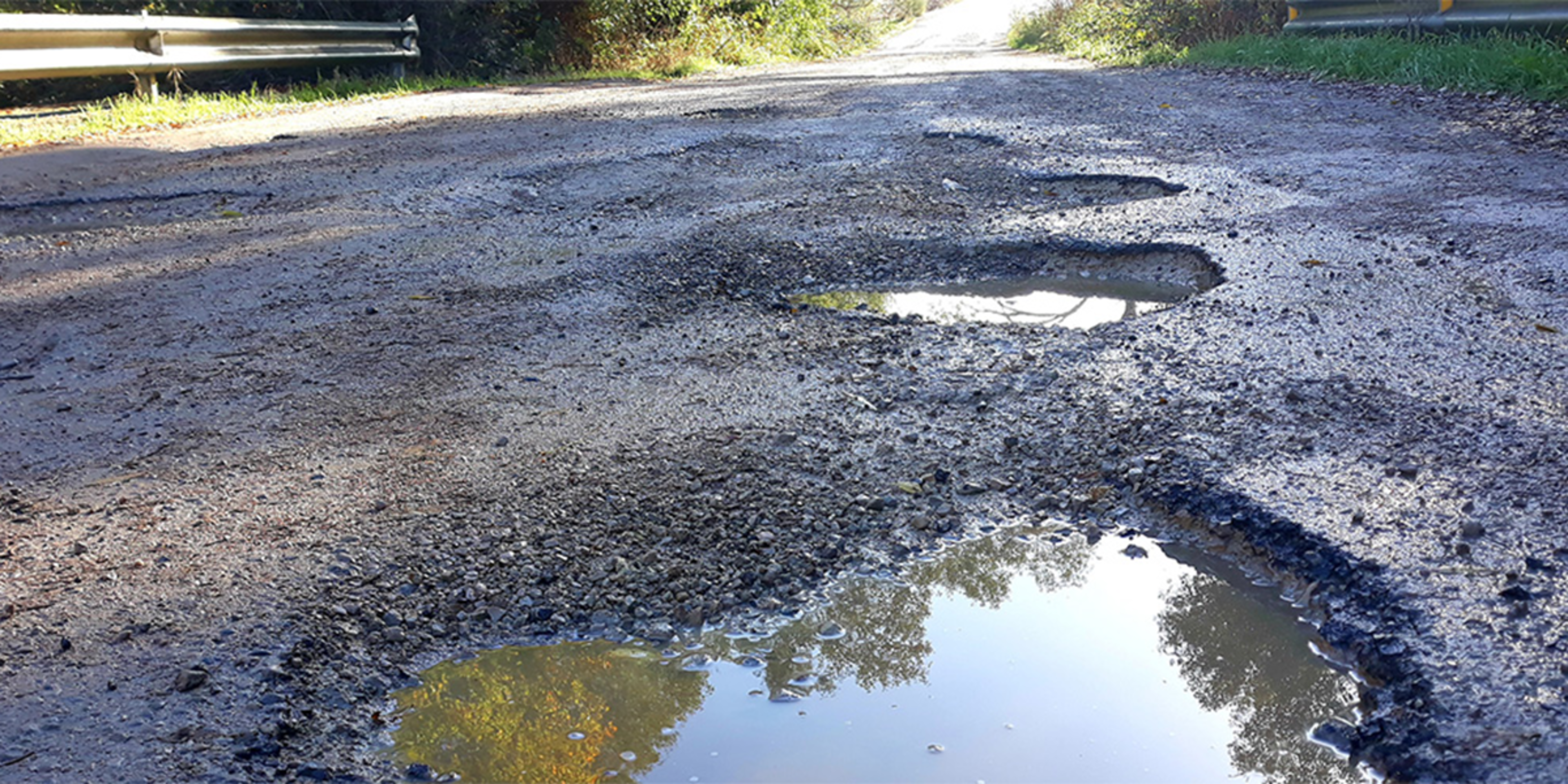Potholes tips and tricks

Tynan Motors - 10th October 2022
Potholes come in a variety of shapes and sizes, though all share one thing in common: they can pose a serious safety hazard and cause vehicular damage ranging from minor to major.
While there’s no ‘right’ way to hit a pothole, here are a few suggestions from the NRMA for motorists who find themselves with one rapidly approaching and a collision inevitable.
1. Reduce speed as much as possible, but don’t slam on the brakes
If you’ve spotted the pothole early, and the conditions around you mean avoiding it is not an option, then attempt to reduce your speed as much as possible without slamming on the brakes.
The slower your vehicle is travelling when it hits the pothole, the less energy will be transferred into the tyre, wheel rim, suspension/steering components and the cabin, reducing the chances of something breaking.
While reducing speed is important, do not slam your brakes. This is for two reasons:
- Any sudden reduction in speed can create a dangerous situation for you and surrounding traffic, potentially leading to a rear-end collision;
- During braking, weight is transferred onto the front wheels, pushing them into the ground even more. When road is suddenly replaced by pothole, this additional weight over the front wheels will push them into the pothole with more force, potentially amplifying damage.
Where possible, turning your hazard lights on to warn drivers behind you of an obstruction up ahead is also a good idea.
2. Keep both hands on the steering wheel
Keeping both hands on the steering wheel is important (and legally required) whenever you’re operating a car, but especially when dealing with potholes.
A pothole can send tremendous force through steering components, which ends up transferring through the steering wheel and back into a driver’s hands. This can cause motorists with a lax grip to lose control of the steering wheel or even injure their hand/wrist.
3. Don’t swerve at the last second
Swerving to avoid a pothole at the last moment is dangerous for multiple reasons.
Firstly, you may lose control of your vehicle during the maneuver or swerve it into another lane/oncoming traffic.
Secondly, steering and suspension components are inherently weaker when steering angle has been introduced, making them more likely to break on impact.
4. Prepare your tyres for more potholes
Maintaining your tyre pressures at the higher end of the manufacturer’s specified window will help them protect the expensive wheel rim inside.
The less air pressure your tyres have, the less ability they have to keep bitumen and wheel apart during a collision with a pothole.
Tyre pressure information can be found on either the driver's side door sill, petrol cap or handbook. If you're still unsure of your vehicle's specific tyre pressures, contact our Tynan Motors service team on (02) 8545 8888.
What to do if you hit a pothole
If you hit a pothole and are concerned you've damaged your vehicle, pull over to a safe location and contact your Roadside Assistance so they can attend to the vehicle and determine whether it is safe to drive or if you need a tow to our service department.
Source: NRMA
